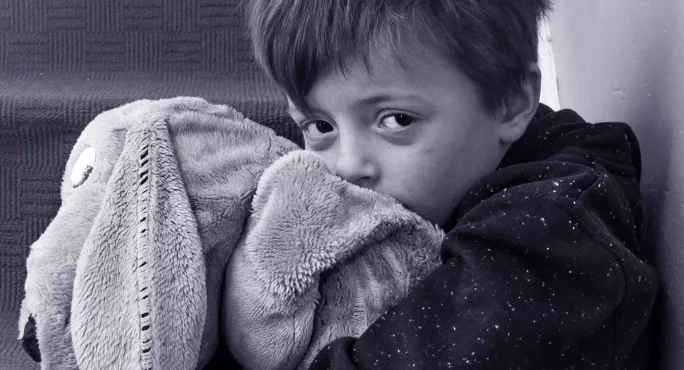- Home
- ‘The stories I hear of pupil poverty are getting worse’
‘The stories I hear of pupil poverty are getting worse’

This week, like every week, politics has been dominated by Brexit. And, yes, we know that it is important, even though the labyrinthine permutations of deal, no-deal, the backstop and the rest are increasingly unfathomable to those outside the Westminster hothouse.
More perturbingly, however, it seems that other critical issues are lost amidst all this white noise; issues that are happening right now under our noses and which require undistracted urgent political focus.
Today, as ASCL’s annual conference opens in Birmingham, we highlight one such matter with the publication of a survey of secondary school headteachers in England and Wales.
It shows how the extent of pupil poverty has increased over the past few years; how local support services for vulnerable children and families have been cut back; and how our underfunded schools are left to pick up the pieces.
And the insights are both heartbreaking and shaming.
Of the 407 headteachers in the survey, many provide clothing and food to disadvantaged pupils, wash clothes and provide sanitary products. Such is the reality of life for many children in one of the world’s wealthiest economies.
And at the same time as schools have increasingly become a fourth emergency service, they have had to cope with real-terms cuts in funding which have made it difficult to sustain their core provision, let alone the additional demands on them.
Nearly all respondents to our survey have had to cut their budgets since 2015 with 60 per cent saying they have had to make severe cuts.
The statistics are stark, but most stark of all are the comments that headteachers made about the extent of pupil poverty. Here are a few of them:
- “This is the biggest block to pupil progress. We now have children who have parents who are third generation unemployed with little or no aspirations and no role model or sense of a way out. It is a crisis.”
- “In 24 years of education I have not seen the extent of poverty like this, children are coming to school hungry, dirty and without the basics to set them up for life. The gap between those that have and those that do not is rising and is stark.”
- “There has been a significant rise in pupil poverty (and the associated issues of hunger, neglect, poor behaviour, mental health issues etc) at a time when schools have had to drastically reduce their pastoral staffing due to funding cuts, resulting in many vulnerable students being hit twice.”
- “Parents have been plunged into poverty and many have lost properties/homes as a result. We have seen an increase in the number of families needing support for basic human needs, food, hygiene and basic equipment to access school. The loss of most other services means that parents and families have nowhere to go for support or help.”
This is the price of a decade of austerity; large numbers of families driven to the margins, depleted public services; and schools left struggling to fill the gaps, to do more with less.
On Wednesday, we welcomed the announcement by the chancellor in his Spring Statement of funding for the free provision of sanitary products in secondary schools and colleges.
But the fact that so many girls cannot afford these products, the fact that so many schools are already funding this provision themselves, is part of the wider picture of pupil poverty evident in our survey.
What is to be done?
The chancellor also said on Wednesday that he intended to launch a three-year spending review before the summer recess, to be concluded alongside the autumn Budget, and assuming a Brexit deal is agreed over the next few weeks.
It will set departmental budgets “to reflect the public’s priorities between areas like social care, local government, schools, police, defence and the environment”.
If that review is really to fulfil the government’s rhetoric about an end to austerity, it must provide a settlement which begins to repair our tattered social fabric.
It has to give schools and colleges the funding they need to deliver the expectations that are placed upon them, and it has to invest properly in the other public services which are so clearly and desperately needed by our most vulnerable citizens.
What it cannot be is more of the same; an allocation predicated on existing departmental budgets plus a bit here and there, squeezed in before the next round of wrangling begins over Brexit.
The country needs more than that. It needs political leadership which restores hope and optimism.
This morning, we will set out at our annual conference our analysis of how much funding schools need to deliver the basic expectations on them. It is not an attempt to embarrass the government, or to box ministers into a corner. It is a genuine attempt to reframe the debate over school funding by matching the level of resources to the level of need.
We hope the government receives it in that spirit, as part of a process of open and constructive dialogue, which paves the way for a settlement that better supports our schools and colleges.
And in particular those children and young people who need our help the most.
Geoff Barton is the general secretary of the Association of School and College Leaders
Keep reading for just £1 per month
You've reached your limit of free articles this month. Subscribe for £1 per month for three months and get:
- Unlimited access to all Tes magazine content
- Exclusive subscriber-only stories
- Award-winning email newsletters



